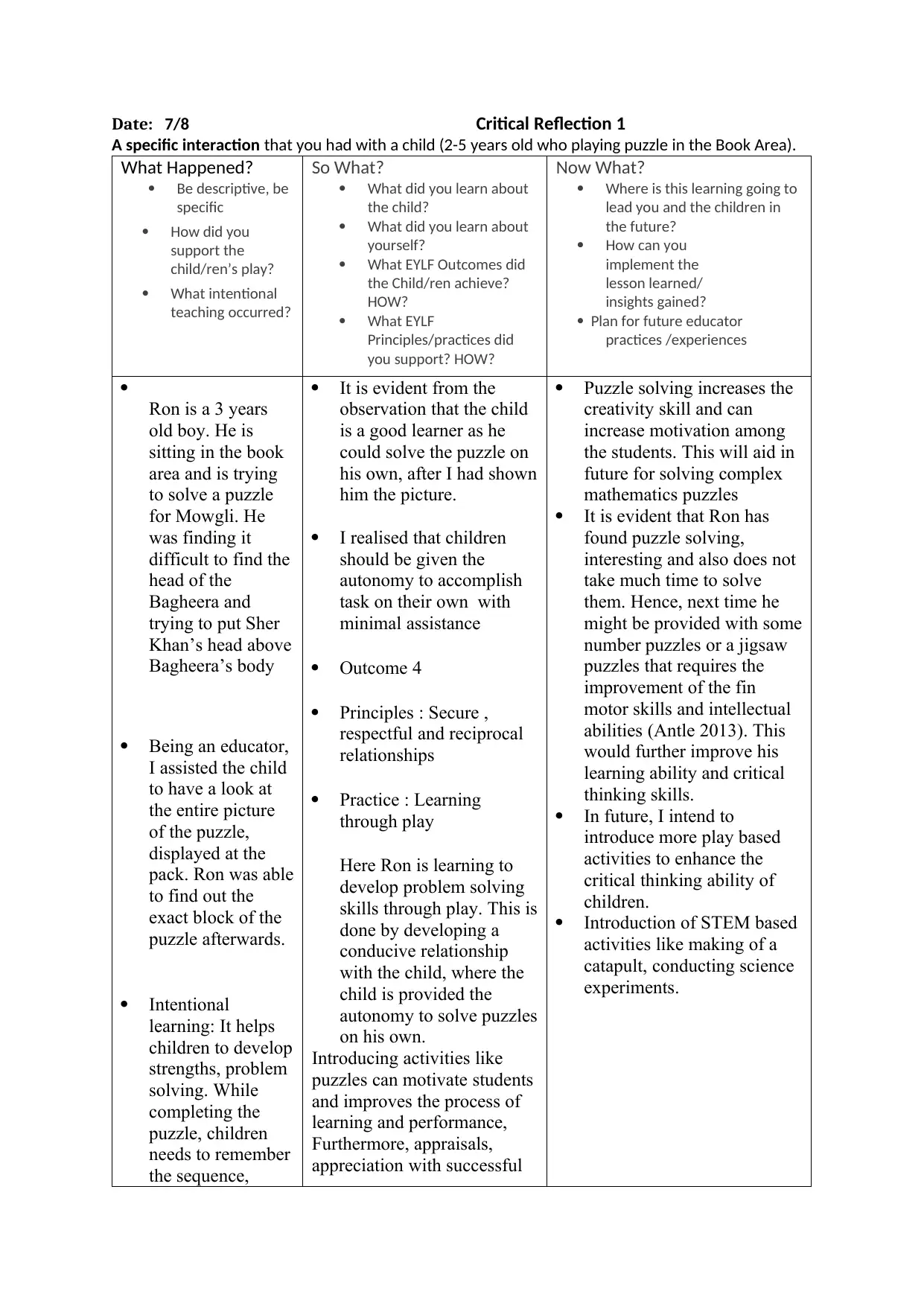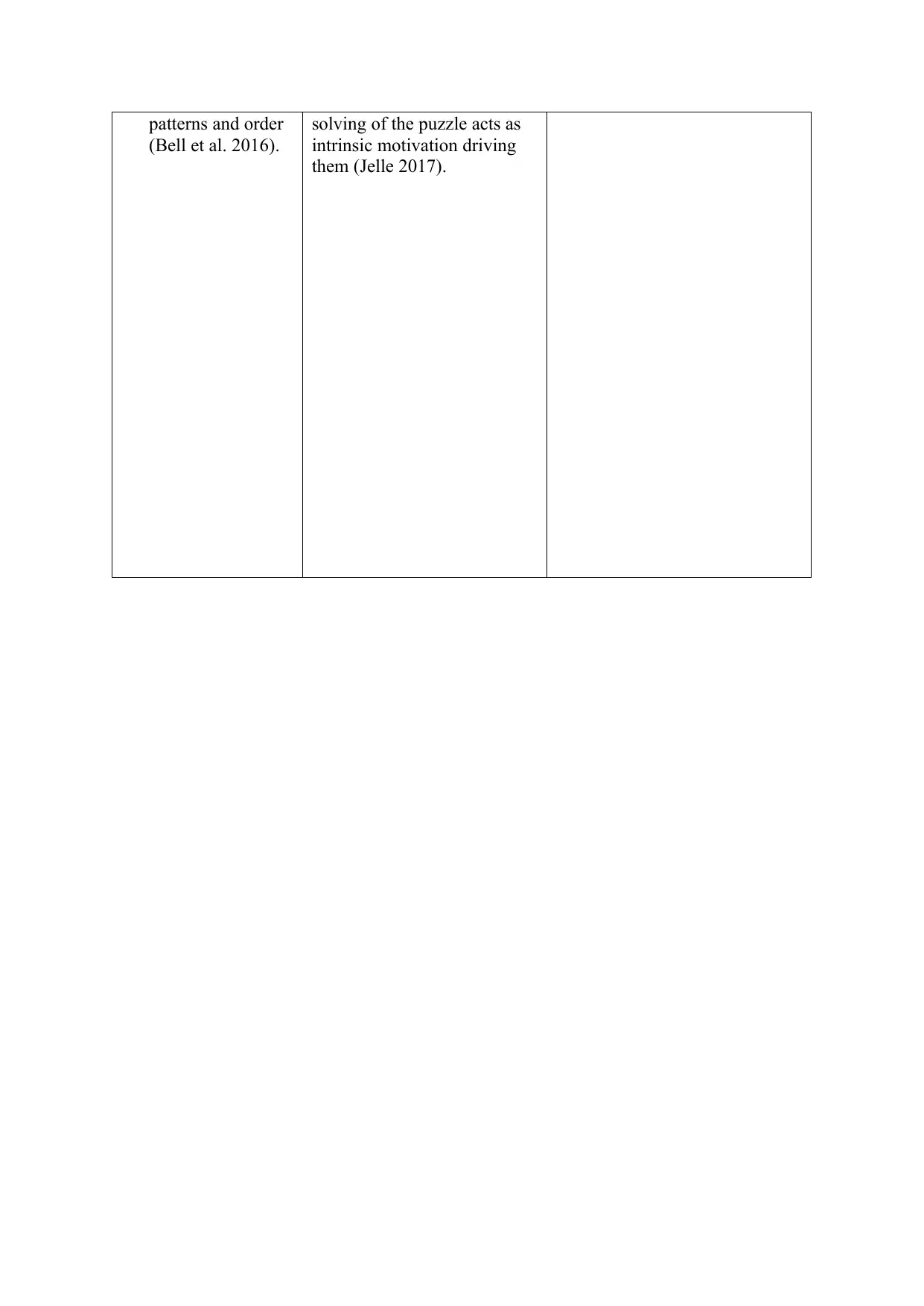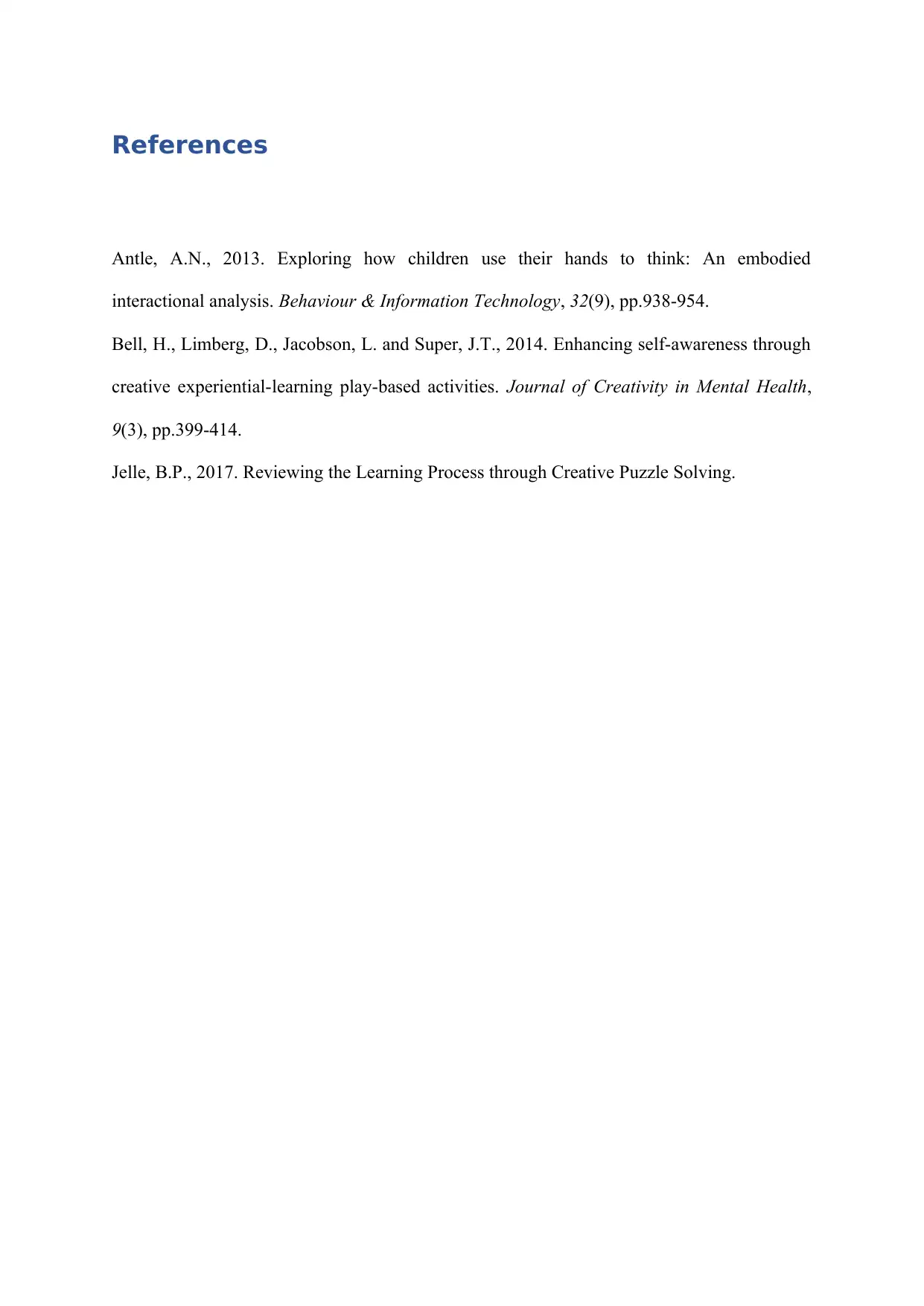Critical Reflection 1: Analyzing Child's Puzzle Play Interaction
VerifiedAdded on 2022/09/28
|3
|602
|19
Journal and Reflective Writing
AI Summary
This assignment is a critical reflection on a specific interaction with a 3-year-old boy named Ron, who was attempting to solve a puzzle in the book area. The reflection details the educator's support, which involved guiding Ron to the picture on the puzzle's packaging. The intentional teaching focused on problem-solving and understanding sequences. The reflection highlights what was learned about the child's ability to learn independently and the importance of providing autonomy. It identifies EYLF Outcome 4 and principles of secure, respectful relationships and learning through play. The educator plans to introduce more play-based activities like STEM activities to enhance critical thinking skills and to improve fine motor skills and intellectual abilities. References to support the reflection are included.
1 out of 3









![[object Object]](/_next/static/media/star-bottom.7253800d.svg)